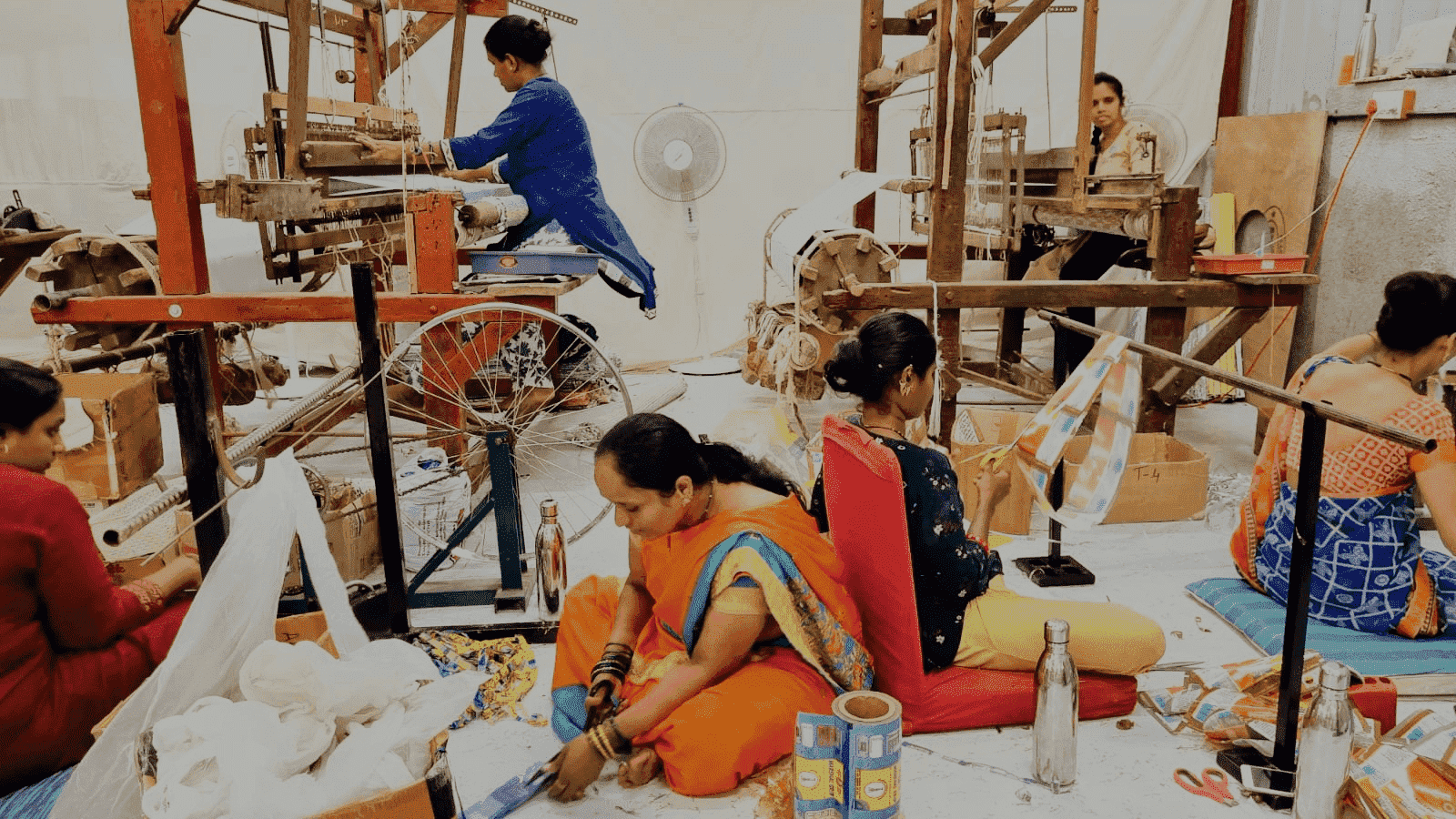
Ecokaari, a Pune-based startup founded by Nandan Bhatt, decided to do its bit in conserving the environment by making the best of plastic waste. The organisation collects single-use plastic waste such as food packaging, e-commerce plastic packaging, gift wrappers, old audio, and video cassettes, etc, and upcycles them into a diverse range of sustainable fashion products – yoga and duffel bags, utility pouches, table runners, foldable trays, backpacks, laptop sleeves, tiffin bags, totes, wallets, planters, water bottle covers, and table mats. Bhatt is a native of Jammu and Kashmir and has taken part in many treks across India. During those, he observed the negligent dumping of plastic waste, especially food wrappers. Being a nature enthusiast, he knew he had to seek an effective solution to the problem. During the R&D stage of his venture, he discovered that various businesses in India are involved in sustainable fashion. He learned and mastered the art of sustainable fashion himself, before building upon this entrepreneurial venture, which came to life post the first lockdown of COVID-19 in October 2020. The name Ecokaari came about with 'Eco' standing for ecological and 'Kaari' standing for kaarigar (artisan), to pay respects to their vision of tackling the plastic waste menace by using the traditional chakra and handloom. Their tagline, 'Humanizing Fashion' is aptly named because right from segregating the plastic, to cutting, spinning and weaving it into a sustainable fashion accessory, the entire process is done manually, with the only reliance on the machine during the stitching stage. The Production Process The production process starts right from the plastic waste collection. Apart from the individuals and cooperative societies that send in their plastic waste, the enterprise has ties with big IT companies, food manufacturing companies and waste collection NGOs, from where plastic wrappers are brought in. The plastic to be upcycled is then sanitised for 3-4 days using herbal cleaners, such as amla, to retain the original colour of the plastic. The then sanitized plastics are segregated by colour and grade. Shivalika Mohan, Ecokaari's communication head, says, "The individual entities who intend on sending their plastic wrappers to us must open them in such a gentle manner and do the basic cleanse of food wrappers so that we can upcycle them." Post the sanitisation and segregation, the plastic is meticulously cut into long strips, which are then spun using a chakra. Lastly, according to the artisans' and designers' decided colour combination, the thread is woven to create a fabric using the handloom and machine-stitched into a sustainable fashion accessory. The organisation's focus on tackling plastic waste has led them to upcycle more than 28 lakh plastic wrappers till date, that is, close to 30,000 kgs annually. Yet Mohan emphasises, "There is a dire need to create awareness on segregating waste right from the source, that is, at an individual level, and to responsibly dispose it of by donating it to NGOs or waste pickers to create a more effective impact in waste management." “In any way possible, we repurpose every plastic wrapper we receive to the best of our capabilities. The ones we receive in good and usable condition, that is, the ones that are opened correctly, are further upcycled into sustainable fashion. The ones that are not opened in the right manner or are too small for us to use, including our production scraps, are sent in bags to enterprises that use plastic to produce fuel," Mohan adds.
28 Aug 2023
Akshita Anna Thomas